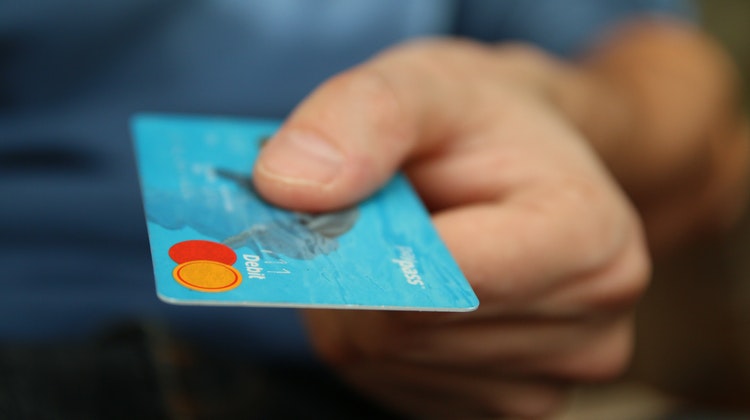One of the ways to pay off your debt is through debt consolidation.
How does debt consolidation work?
While the company will do the work for you, it is important to know the process.
It is also crucial to know what to do first and the things you need to avoid.
So whether you’re thinking of getting debt consolidation loans or if you have already decided, here are 5 tips you might find handy.
Debt Consolidation | Simple Ways To Get Out Of Debt
1. Get a credit counseling session.
I kind of want to do a debt consolidation loan to make it easier on myself and have everything in 1 spot.
— Ordinary Demiguy (@xMatthmaticsx) July 16, 2017
Debt consolidation is not fit for everyone.
So before you have your debts consolidated, you need to go through credit counseling first.
This session is to assess your financial situation before making a decision to consolidate your debt.
You will have to provide your financial information such as your income, assets, credit card debts, and liabilities.
This is free and done either in-person, online, or over the phone.
In choosing you credit counseling agency, you need to make sure it is trustworthy and is accredited by the following organizations:
- National Foundation for Credit Counseling (NFCC)
- Council on Accreditation (COA)
- Better Business Bureau (BBB)
2. Do your research.

Debt consolidation is not offered by all banks and credit unions, so you have to do your research.
Online lending sites offer debt consolidation and are a better place to borrow.
Research not only on the debt consolidation companies, but also on the implications of doing so.
Although debt consolidation lowers your interest rates and monthly payments, it has corresponding fees.
So, you need to find the best rates the companies offer.
3. Identify which debts to consolidate.
Considering credit card debt consolidation? https://t.co/fb7E9Xvnyn | #CreditCardDebt #Accountant #CoralGables #FL
— Calas Group (@Calasgroup) July 26, 2017
If you have several debts, bear in mind that not all debts qualify for debt consolidation.
Here’s a list of debts you can include in applying for debt consolidation loans:
- Credit cards
- Gas card bills
- Retail card bills
- Department store cards
- Student loans
- Unsecured Personal Loans or Personal Signature Loans
- Payday loans
- Finance company loans
- Personal lines of credit
- Medical bills
- Hospital bills
- Back rent
- Court judgments which are not yet enforced
- Utility bills like telephone, cable, electric, gas, etc.
- Mobile phone bills
- Income taxes
- Some cases of Home improvement loans
- Auto Repossession
- Short Pay Mortgage Balances
- Loans or credits extended without a collateral requirement
Here’s a list of debts that can NOT be consolidated:
- Auto loans for new and used vehicle
- Recreational vehicle loan
- Mortgage
- Home Equity Lines of Credit
- Home Loans
- Boat Loan
- Government Loan
- Lawsuits
- IRS Debt and Back Taxes
RELATED: How Debt Consolidation Works
4. Choose wisely.

In choosing your debt consolidation company, do not focus on the organization’s success and popularity.
You also need to make sure the companies are credible, trustworthy, and capable of handling your situation well.
Financial companies have different products and services to offer.
Just the same, borrowers have different needs, situations, and debts.
Tips on What You Need To Do Before Choosing Your Consolidation Company:
- Do not rely on ads. Check reviews and ask friends and family what they know about the company.
- Check if the company has unresolved complaints. Verify it with BBB’s (Better Business Bureau) records.
- Contact your state’s attorney general to know if the company is licensed to operate in your state.
- Make sure the company can offer you a solution after reviewing your financial status.
- Choose a company that offers you a reasonable debt repayment plan you can afford to pay.
5. Do not neglect your responsibilities.
@SettleiTsoft helps #debtors in #financial distress #settle unpaid #debts for #Free! #FinTech #StartUp #MiamiTech https://t.co/AIGXdczBE9
— Martha Henry (@MarthaCHenry) July 25, 2017
You may think debt consolidation is the solution to all your debt-related problems.
It probably is, so long as you don’t neglect your responsibilities after consolidating your debts.
As a borrower, you need to be responsible for the following:
- Monitor, copy, and then forward monthly account statements to your chosen agency every 3 months or so.
- Make it a habit of submitting every financial statement to your agency so that reports will be accurate.
- If you are still harassed by your creditors via phone call, let your agency know so they can handle it.
Things to Avoid While Having Debt Consolidation Loans:
- Avoid incurring more debts, like using a credit card. Not only will it pile up to your current debts, but you are creating another habit of spending when you should be saving and paying off your debts fast.
- Avoid using your credit card in case of an emergency. Instead, save money and use it as an emergency fund.
For more tips, here’s a clip from The Dave Ramsey Show:
Debt consolidation can be helpful to borrowers, especially if you have several debts that tend to overwhelm you.
However, it entails responsibility, so you need to take this seriously and monitor consistently.
To help you further, here’s a list of 15 Debt Consolidation Companies to choose from.
Are there other tips you can share about debt consolidation? Share it with us in the comments below!


